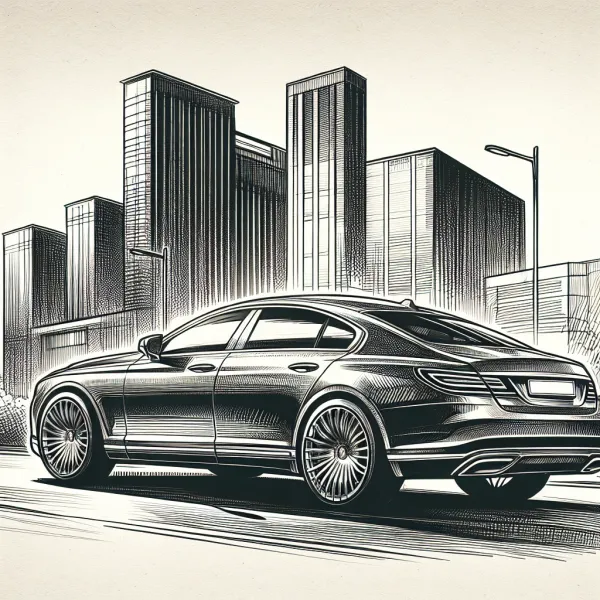BMW 5 Series 2.0L Turbo: A Mechanic's Deep Dive into Ownership Costs and Reliability
Introduction: The BMW 5 Series 2.0L Turbo – A Mechanic's Perspective
The BMW 5 Series 2.0L Turbo, particularly the models newer than 2020, presents a compelling blend of luxury, performance, and technology. It's a car that appeals to drivers who want a sporty yet comfortable ride, packed with features. However, as a mechanic who's seen countless 5 Series roll through my shop, I'll give you the unvarnished truth about ownership.
Real-World Fuel Consumption
The manufacturer's claimed MPG figures are often optimistic. In the real world, expect to see around 22-25 mpg combined for city and highway driving. Aggressive driving, frequent short trips, and cold weather will significantly lower this. The 2.0L turbo engine is relatively efficient for its power output, but it's not a fuel miser. Highway driving will yield better results, but stop-and-go traffic can quickly drain the tank.
Common Problems (From a Mechanic's Perspective)
While generally well-engineered, these BMWs have their weak points. I've seen a fair share of issues with the high-pressure fuel pumps, occasionally failing prematurely. These can be costly repairs. Another recurring issue is the electrical system; various sensors and modules can fail, leading to strange warning lights and potentially drivability problems. Regular maintenance is key to mitigating these issues. Furthermore, the turbocharger itself, while generally robust, can suffer from issues if neglected. Oil changes using the correct specification are critical.
Maintenance Costs
Expect to pay a premium for maintenance on this vehicle. Oil changes are more expensive due to the specialized oil required. Brake jobs are also costly, given the performance-oriented nature of the car. Tire replacements will be frequent if you drive aggressively. Don't forget about the potential for costly repairs related to the high-pressure fuel pump or electrical system failures. A typical oil change will cost between $150-$250, while a brake job can easily reach $800-$1200. Tire replacements will vary based on the type of tire chosen.
Hidden Costs
Beyond the standard maintenance, there are hidden costs. Specialized tools are sometimes required for certain repairs, adding to the expense if you're not using a dealership. The specific type of oil, often BMW-approved synthetic, is more expensive than conventional oil. Ignoring these details can lead to unexpected repair bills.
Overall Reliability
The BMW 5 Series 2.0L Turbo isn't inherently unreliable, but it's not immune to problems. Regular and meticulous maintenance is paramount. Ignoring warning signs or delaying necessary repairs can lead to significantly higher costs down the line. I'd rate its reliability as average compared to other luxury vehicles in its class. The frequency of issues depends heavily on the owner's maintenance habits.
Total Cost of Ownership
Owning a BMW 5 Series 2.0L Turbo is an expensive proposition. Factor in the higher purchase price, premium fuel costs, costly maintenance, and potential repairs. Expect significantly higher costs compared to owning a similar-sized vehicle from a non-luxury brand. This is not a car for someone on a tight budget.
Resale Value
BMWs generally hold their value relatively well, and the 5 Series is no exception. However, the resale value will depend on the car's condition, mileage, and service history. A well-maintained vehicle with a comprehensive service record will command a higher price. Finding buyers for a well-maintained used 5 Series is generally easier than for many other cars.
Tips for Prospective Buyers
When buying a used BMW 5 Series 2.0L Turbo, get a pre-purchase inspection from a trusted mechanic. Check the service records meticulously. Look for signs of neglect or improper maintenance. Be wary of overly low prices—it could indicate hidden problems. Run a vehicle history report to check for accidents or title issues. If something feels off, walk away. There are plenty of other cars out there.
Alternatives
If the BMW 5 Series is out of your budget or you're looking for something more reliable and less expensive to maintain, consider alternatives like the Audi A6, Mercedes-Benz E-Class, or even a well-equipped Lexus GS. These offer similar luxury and features but may have lower maintenance costs.
Conclusion
The BMW 5 Series 2.0L Turbo is a desirable car, but it's crucial to understand the costs involved. Regular maintenance is non-negotiable, and potential repairs can be expensive. If you're prepared for the financial commitment and willing to prioritize preventative maintenance, you'll likely enjoy the driving experience. However, if budget is a major concern, explore some of the more affordable alternatives.
